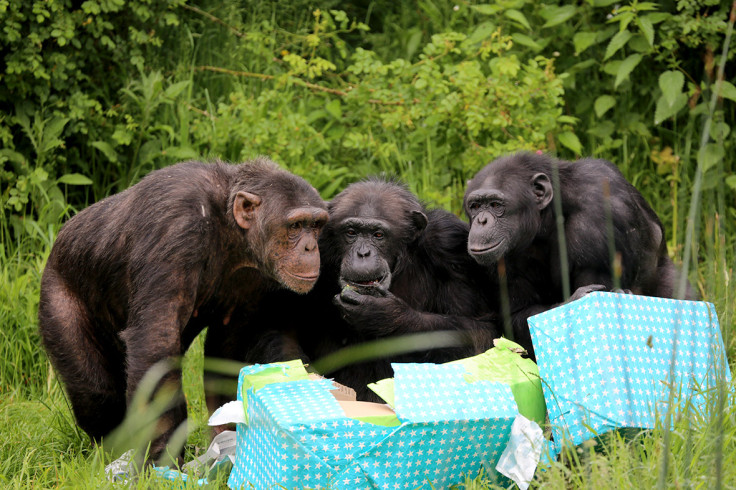Chimpanzees get video conferencing gear in experiment backed by Peter Gabriel

Chimpanzees around the world are to be given access to video-conferencing equipment to see if they use it to communicate with one another. The experiment, which is backed by musician Peter Gabriel, aims to study how apes embrace social technology and will analyse the ways their online communication techniques compare with humans.
The experiment is due to begin next spring, with the initial focus being a troupe of chimpanzees living at Monkey World – a 65-acre rescue centre in Dorset. Once the apes have grown used to the equipment, the experiment will be extended to the African jungle, where chimpanzees released from the same rescue centre will be reunited with their old friends via video links.
The hope is that the apes will recognise each other and communicate via the equipment, which will be embedded in trees or behind clear glass to protect it from chimp-related damage. The whole project will then be turned into two documentary films made in conjunction with west London's private Latymer Upper School, which Gabriel's son Isaac attends.
The long-term plan is to extend the project to chimpanzee troupes around the world and eventually to other animal species – including dolphins and elephants. Once it is established how the creatures use the equipment to communicate with each other, the technology will then be adapted to try and allow humans to communicate with animals more effectively.
"The idea is to extend a big video network that already exists in labs at Massachusetts Institute of Technology so that different species including our own have a chance to communicate," Gabriel told the Sunday Times. "I am absolutely certain the monkeys will use the video cameras in Monkey World to communicate with each other. I am also interested in how they would use the internet to communicate," he added.

Gabriel is working on the project alongside scientists, technology pioneers such as Vint Cerf – one of the engineers who developed the internet – and the Massachusetts Institute of Technology professor Neil Gershenfeld. It is not the first time he has been involved in scientific research involving apes.
The musician previously worked on a similar experiment with primatologist Sue Savage-Rumbaugh at a research centre in Atlanta, USA. In that experiment, he spent weeks trying to make music with bonobos, watching how they gradually changed their approach to the keyboard from bashing at notes with their fist, to delicately tapping individual keys to produce a more musical sound.
Apes, Gabriel said, "are more adept at understanding our language than we are theirs". "I asked the bonobos to play. They were exploring the keyboard. I asked them to try with two fingers. I really felt I was sitting there with our evolutionary forefathers," he added.
Earlier this year scientists analysing the habits of chimpanzees released new research suggesting apes now have nearly all the mental capabilities required to cook food. They analysed whether the chimps preferred hot or cold food and whether they had the patience to wait until raw food was cooked. The apes passed all the tests with flying colours, BBC News reported.
The only evolutionary trait now missing was the ability to control fire, scientists from Harvard University said – but even in humans this skill developed relatively late. Research suggests humans started producing cooked food shortly after learning how to control fire.
© Copyright IBTimes 2025. All rights reserved.





















